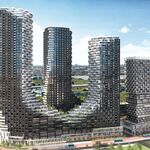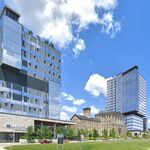G
green22
Guest
New transit projects
www.metronews.ca/column.asp?id=634
Road repairs, subway cars arrive next year (budget)
www.insidetoronto.ca/to/n...0006c.html
Citizens on board? (representation)
www.metronews.ca/column_i...51&cid=634
Councillors a better choice
www.metronews.ca/column_i...34&cid=634
Creativity commission for TTC
www.eye.net/eye/issue/iss...orial.html
Consult with pedestrians on transit plans www.insidetoronto.ca/to/o...0611c.html
Is Milton paradise lost? (smart growth) www.thestar.com/NASApp/cs...0599119419
Propping up lemons (auto industry)
www.nowtoronto.com/issues...story2.php
Constructing danger? (Harmonization = suburban road widths) www.pulse24.com/News/Top_...2/page.asp
Downtown Parking: (should parking be free)
www.walkablestreets.com/downpark.htm
In today’s India, status comes with 4 wheels www.nytimes.com/2005/12/0...nd&emc=rss
We’re the biggest pigs in the Country (York region environmental footprint) www.yorkregion.com/yr/yr4...4925c.html
Councillors put breaks on bus fare increase (Hamilton) www.dundasstarnews.com/NA...3476868082
New Fraser River bridge okayed (Vancouver transport projects) www.canada.com/vancouvers...be39d3b683
Streetcars making a vigorous comeback (North America)
www.lightrailnow.org/feat...005-03.htm
Next RR meeting
Tuesday Jan. 3rd 6:30 to 9:00
City Hall Committee Room 3
www.metronews.ca/column.asp?id=634
Road repairs, subway cars arrive next year (budget)
www.insidetoronto.ca/to/n...0006c.html
Citizens on board? (representation)
www.metronews.ca/column_i...51&cid=634
Councillors a better choice
www.metronews.ca/column_i...34&cid=634
Creativity commission for TTC
www.eye.net/eye/issue/iss...orial.html
Consult with pedestrians on transit plans www.insidetoronto.ca/to/o...0611c.html
Is Milton paradise lost? (smart growth) www.thestar.com/NASApp/cs...0599119419
Propping up lemons (auto industry)
www.nowtoronto.com/issues...story2.php
Constructing danger? (Harmonization = suburban road widths) www.pulse24.com/News/Top_...2/page.asp
Downtown Parking: (should parking be free)
www.walkablestreets.com/downpark.htm
In today’s India, status comes with 4 wheels www.nytimes.com/2005/12/0...nd&emc=rss
We’re the biggest pigs in the Country (York region environmental footprint) www.yorkregion.com/yr/yr4...4925c.html
Councillors put breaks on bus fare increase (Hamilton) www.dundasstarnews.com/NA...3476868082
New Fraser River bridge okayed (Vancouver transport projects) www.canada.com/vancouvers...be39d3b683
Streetcars making a vigorous comeback (North America)
www.lightrailnow.org/feat...005-03.htm
Next RR meeting
Tuesday Jan. 3rd 6:30 to 9:00
City Hall Committee Room 3




